Reviewer picks 2024 (pt. 2)
[We asked, our contributors answered. And did we mention eclectic? The titles range from prize- winners (BC Book, Pulitzer, Writers’) to, well, books you’re likely to be seeing for the first time as you scroll down the picks below. Thank You to our reviewers for their efforts! —Eds.]

Burma Sahib, by Paul Theroux.
George Orwell’s colonial experience as a young Eric Blair is well known, thanks to Emma Larkin’s Finding George Orwell in Burma (2004). Does late-career Theroux dial in this fictionalized version? No.
This is a haunting novel that’s true to Orwell’s voice while capturing the gritty atmosphere of 1920s Burma and the devastating costs of British imperialism in its final gasp.

Knife: Meditations After an Attempted Murder, by Salman Rushdie. Ever since the 1989 fatwa, Salman Rushdie’s life has been literary fodder. When the longest delayed death sentence was carried out in 2022 and Rushdie survived it, you knew there’d be a book.
Knife is both a thrilling and morally satisfying memoir with a happy ending: love, art, and passionate intelligence prevail over religious fanaticism and barbaric philistinism.
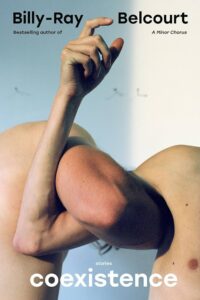
Coexistence, by Billy-Ray Belcourt. The burden of addressing the legacies of anti-Indigenous racism/colonialism in fiction is to create characters and situations not predictably weighed down with polemics or didacticism.
Throughout these ten short stories, Belcourt meets the challenge by constantly engaging us with original insight—he’s equally at home describing the boreal forest and citing Virginia Woolf’s defence of writerly independence. —DG
* * *
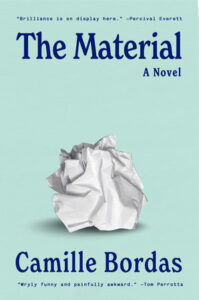
The Material by Camille Bordas takes place over the course of one day and centres on the instructors and students of the Chicago Stand-Up MFA Program. The most recent hire, Manny Reinhardt, is not without controversy—he is publicly maligned for his allegedly problematic behaviour toward women.
Dorothy, the only female instructor, is a particular highlight with her matter-of-fact wryness. Employing third-person multiple point of view with empathetic breadth and witty, character-specific dialogue, Bordas has written an impressively funny, profound novel about a group of vulnerable comedians who both fear and long for love and recognition.

Alex Kovacs’ Sexology has the intelligent chaos of The Selected Works of T.S. Spivet by Reif Larsen and the large, loquacious family dynamic of Camille Bordas’ How to Behave in a Crowd.
A genuinely strange novel more interested in exploring a weird family than adhering to conventional plot and all the better for it. Expect lettuce, more talking about sex than sex, and ample humour.
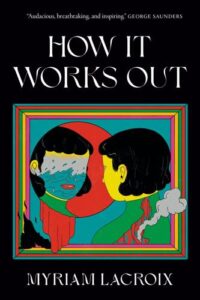
Garishly hip baby names, Commercial Drive, Kristen Stewart, tomatoes, and cannibalism—not necessarily in that order—are all vibrantly present on How It Works Out by Vancouver-based Myriam Lacroix, a witty collection of linked short stories featuring the same queer couple, Myriam and Allison.
If you liked Anagrams by Lorrie Moore but wished it were funnier and queer, read this. —JP
* * *
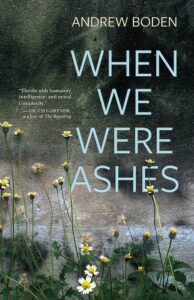
When We Were Ashes, by Andrew Boden
Exquisitely written, Boden’s novel addresses the Aktion T4 program in Nazi Germany, and despite the difficult subject, his novel speaks to the dignity of the human spirit in the midst of suffering.
He treats his characters with tenderness and care; main character Rainor is a revelation. With touches of magic and music infusing the narrative, this was an unforgettable reading experience.
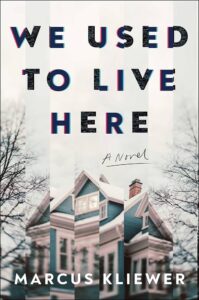
We Used to Live Here, by Marcus Kliewer
Kliewer’s spooky-house novel begins when a family shows up at couple Eve and Charlie’s doorstep then don’t want to leave. There’s a house that’s more than it seems; vaguely threatening folks who may not prove trustworthy; and a plot line that had me questioning my take on things.
A page-turner, this was horrific fun that actually freaked me out a bit, and I don’t scare easily.
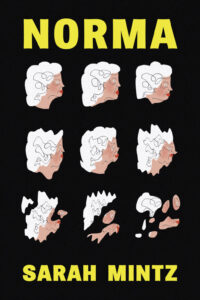
NORMA, by Sarah Mintz
I was captured by author Mintz’s straightforward prose that begs to be read aloud, mixed with forays into wildly experimental writing.
All the better to dive into the mind of main character Norma, a recently widowed retiree who fixates on an abused grocery store clerk as her reason to keep living. It’s a stealthy exploration of loneliness and grief, and I loved it from beginning to end. —TB
* * *

Some years ago Jo-Ann Wallace, the Victoria writer who died in June 2024, typed the entire text of Mrs. Dalloway for a scholarly edition.
Wallace writes about the importance of the Virginia Woolf novel to her life in her book of essays, A Life in Pieces, and remembers fragments, gains insight, asks questions, and contemplates and appreciates the dailiness at the end of her life.
The essays with Wallace’s dry humour are gorgeous in their honesty as well as in their woven themes.
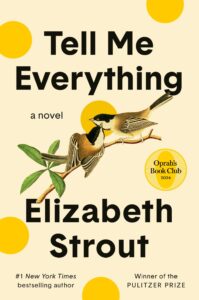
Elizabeth Strout’s Tell Me Everything includes characters from previous novels such as Olive Kitteridge and Lucy Barton. Strout’s straightforward language can pull on our heartstrings and she knows just when to leave things unspoken.
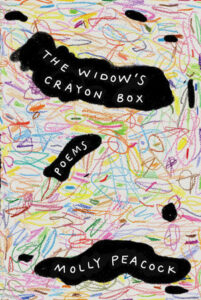
It’s not the murder that is at the heart of the book set in Crosby, Maine but the tenderness expressed by the lawyer towards his accused client as well as the truth, beauty, and suffering expressed through the interconnections of the characters.
Among my poetry favourites is Molly Peacock’s The Widow’s Crayon Box, a powerful and passionate expression of grief.
Peacock is honest in her poems about the resentment caregivers can feel. In her weekly sonnet practice, she illustrates a widow’s ongoingness through a difficult and surprising array of emotions. —MAM
* * *
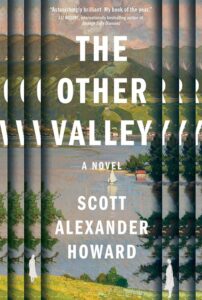
In 2024 I married my partner of almost 10 years, so it is only fitting that my favourite novels all focus on love—in one way or another. Wilde was right when he said life imitates art, no?
The Other Valley, by Scott Alexander Howard
On the surface, The Other Valley is cerebral science fiction fixated on the time/space paradox. Beneath this is an earnest exploration of love and loss through the lens of an awkward teenage girl.
The result is deeply moving and surprisingly charming. The debut novel by a Vancouver-based writer, it lingered with me for months.

Housemates, by Emma Copley Eisenberg
Housemates is unflinching.
Against the backdrop of a Coen Brothers-esque road trip, Eisenberg investigates romance, queerness, politics, art—and the beautiful and terrifying moments where these areas overlap.
Housemates won’t be for everyone, but it was certainly for me.

The Book of Love, by Kelly Link
In The Book of Love, three teenagers are resurrected and are forced to learn how to live a life forever tarnished by death.
For avid fans of Link’s short fiction, The Book of Love was long-awaited and Link did not disappoint.
The novel is unabashedly weird, and I honestly couldn’t have enjoyed it more. —ZM
* * *